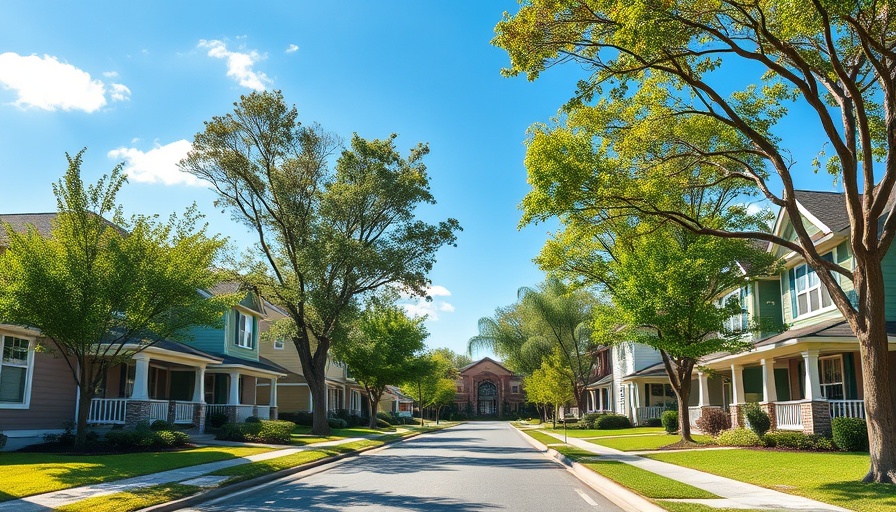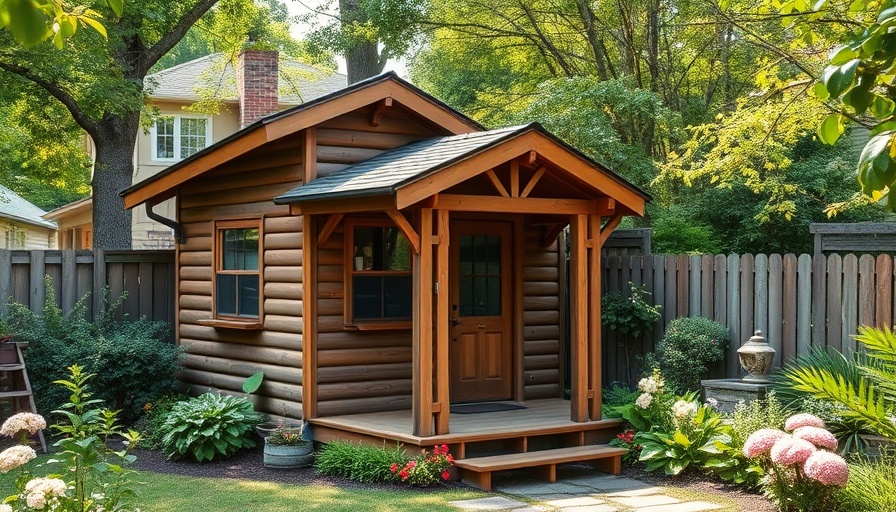
Understanding Older Adults' Housing Needs
As more individuals reach retirement age, a significant societal shift is evident: older adults overwhelmingly wish to remain in their communities as they age. Findings from AARP and the Pew Charitable Trusts illustrate that 73% of adults aged 50 and older desire to stay put, valuing the local amenities, social connections, and access to medical services available in their neighborhoods. Yet, this desire often comes into conflict with housing availability and suitability.
The Call for Housing Regulation Reform
Older adults are voicing their opinions on the need for reforms in housing regulations to address their unique challenges. A recent survey indicates that there's widespread support (88%) for simplifying and expediting the permitting processes, which developers often face, potentially clearing the path for a broader range of housing options catering specifically to this demographic.
In contrast, support dwindles for certain zoning changes such as accessory dwelling units and duplexes, with older respondents showing hesitance compared to younger generations. This might indicate a need for tailored outreach efforts to educate seniors on the benefits these innovations can offer, suggesting an approach that intertwines education with policy change.
Key Insights from the Survey
The surveys reveal crucial insights into what older adults truly want from their housing environments:
- Support for Housing Reforms: An overwhelming 82% support permitting apartments near transit or job centers, highlighting the need for convenient housing options that also enable access to necessary services.
- Conversion of Commercial Spaces: The conversion of commercial properties into housing garnered an 82% approval rate, reflecting the adaptability of older adults to new living arrangements that utilize existing infrastructure.
- Parking Flexibility: Another interesting finding showed that 59% of those surveyed supported giving owners and builders more freedom in managing off-street parking, which can facilitate the development of more affordable housing units.
Building Future Communities
Identifying how to innovate within existing zoning laws and building practices can significantly impact the quality of life for older adults. Adapting to their voices in housing policy could lead to diverse and innovatively designed neighborhoods, fostering inclusivity and accessibility for all ages.
Next Steps and Community Conversations
As communities grapple with increasing housing demands, engaging older adults in conversations about potential developments and reforms is critical. Their insights can inform more effective planning and community-building practices that reflect their needs while enhancing neighborhood stability.
 Add Row
Add Row  Add
Add 




Write A Comment